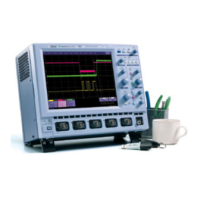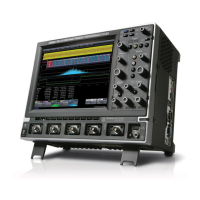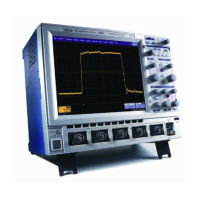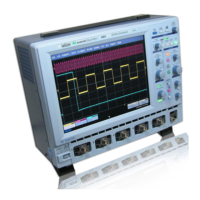290 WM-OM-E Rev I
Variable Names
Upper and lower case have no significance in VBS, either in variable names or in keywords (the
names reserved by the system), but it is a good idea to be consistent about the spelling of a
variable name to avoid confusion. At least 36 characters may be used in a variable name. These
can include any combination of alphabetic and numeric characters, and the underscore character.
No other punctuation character may be used in a variable name.
Do not use any of the following characters in a variable name:
! @ & $ # ? , * . { } ( ) [ ] = + - ^ % / ~ < > : ;
Just use alphanumerics and underscore, for example: Example_Name
If you have to introduce constants, give them sensible names, just like variables. For example, do
not write:
_If RMS < 23169 Then OutputY = Y
Its meaning may not be obvious to someone else.
It is better to write something like this:
FullScale = 32767
RootTwo = Sqr (2.0)
MaxRMS = FullScale / RootTwo
. . . . .
If RMS < MaxRMS Then . . . . .
But to keep your scripts fast, leave definitions like this outside your loops.
General usage
Note that white space has no effect, so you can introduce spaces for clarity, except of course within
variable names, function names and other keywords. Indenting control statements can be a great
help in understanding a program. For example:
For K = Kstart To Kstop
X = K * Sqr (3)
For N = NStart To Nstop
Y = N * N
If Y < FullScale Then
. . . . . .
. . . . . .
End If ' End of main calculation
Next ' End of N loop
